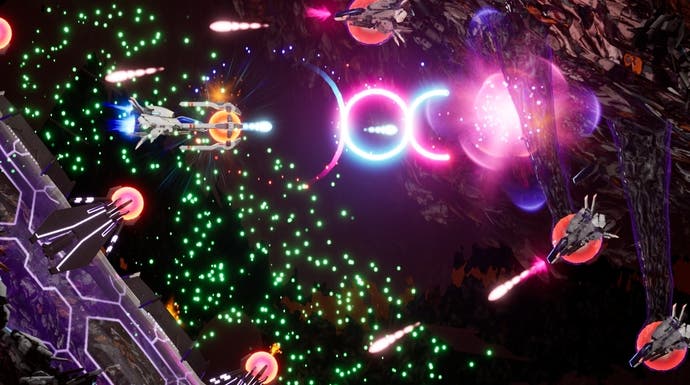How the grand dame of shooting games is making its return
'I don't want to leave anything on the cutting room floor.'
There are shooting games, and there are shooting games. Irem's 1987 R-Type can't exactly claim to be the first of its kind, and you could well argue there are more widely acclaimed shooting games, but you'd be hard pushed to find any as iconic as this stately sci-fi venture. Cold, composed and challenging, it's the archetypal 80s shooter, and a prime example of the genre in its pomp.
The popularity of shooting games would wane throughout the 90s, however, and by the turn of the century those in charge of the series wondered whether it had a future at all. Which explains the brilliantly fatalistic air that hangs over R-Type Final, the 2004 entry that was imagined as a full-stop for the series.
R-Type Final lead designer Kazuma Kujo has since discovered there's life yet in the series, though. The veteran of Nazca, Irem and now Granzella - the studio where many Irem alumni ended when the company moved away from video games - now finds himself heading up development of a sequel, somewhat bafflingly called R-Type Final 2, after a Kickstarter campaign more than doubled its targets. A month ahead of R-Type Final 2's release on April 29th, we spoke to Kujo about R-Type's return, and what it will entail.
I'd like to start off talking about your relationship with the shooting genre.
Kazuma Kujo: I've loved shooting games since childhood. I'd play them in arcades and game centres. When I started working for game companies, when I entered the game industry, I'd create them all throughout my 20s. There were some games that I was able to play a role in creating that are lesser known. There's Metal Slug...
I know that one quite well!
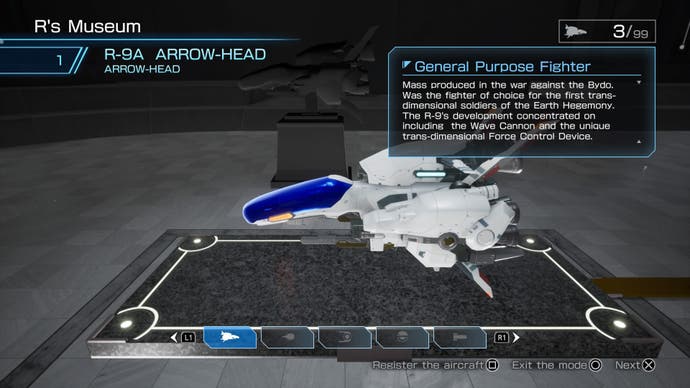
Kazuma Kujo: I started out with a passion for it and ultimately and kept with it and created those games
It's a genre that's clearly dear to you. Was it R-Type that attracted you to work at Irem in the first place?
Kazuma Kujo: Actually before I joined Irem I hadn't played it - I did find it to be a really interesting game, but to be perfectly honest I found R-Type to be a little too difficult...
That's fair enough. I love shooting games - I love them to bits - but I also find them very difficult but it doesn't stop me loving them. R-Type Final was a game you played a big part in - what can you tell me about the thinking behind the concept of the game?
Kazuma Kujo: I'd just made R-Type Delta, and around that time I started to feel maybe the age of shooting games is coming to an end. While they were still popular even at that time, R-Type Delta, when it was released back in 1998, I felt that they were kind of waning in popularity. Fans had been asking us to make another R-Type, but I felt it would be challenging to make additional gains in that genre, that maybe they had reached a conclusion. I kind of wanted to end R-Type there - that's how I came up with the name.
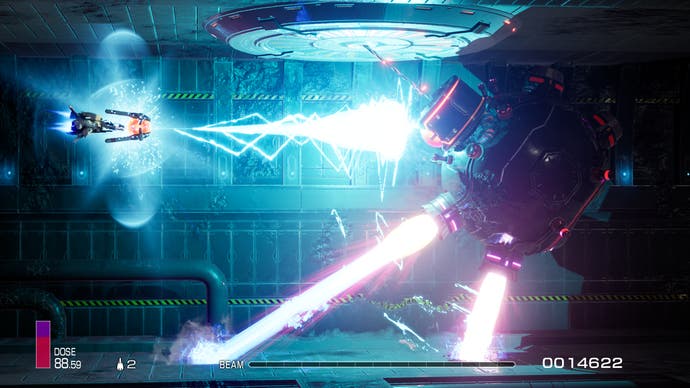
It did feel like a grand farewell. How has the landscape changed to make it viable for R-Type to come back now?
Kazuma Kujo: [laughs] I get that question a lot! When we released R-Type Delta, I thought that would be it, that there wouldn't be a tonne more games in that genre. I certainly didn't think that I'd be asked to make another game in that genre. However, the genre did not die!
In 2003, when R-Type Final was released, I thought that was definitely going to be the end! But contrary to that, the genre stuck around! They have staying power! On top of that, these great indie shooting games were releasing in the genre as well. So that's one reason.
One other thing that's kind of changed was wider TVs. Widescreen is the standard. In my eyes, an R-Type style game on that type of TV feels like a natural fit. But when I presented it, I did not expect the reaction to be what it was - I figured it'd maybe have more of a cult following. We got a really big response and I was surprised by that.
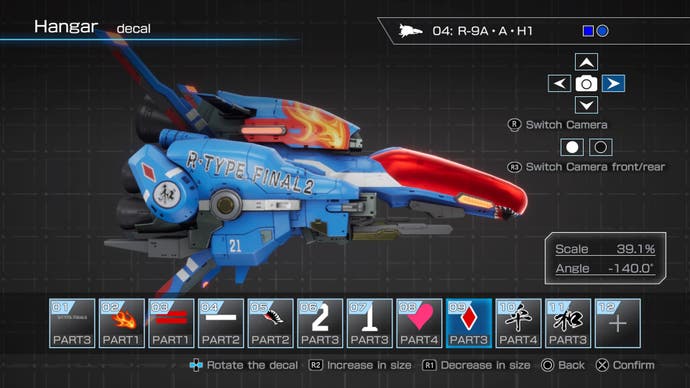
It was fantastic to see how big the response was as well, and it's good to see so many fans of the shooting genre out there. The original R-Type was a very melancholy feeling game, in no small part because of the statement it felt like it was making about the genre dying. This time around, though, the mood around it all seems a bit more jubilant. Is that going to be reflected in this sequel, or is it still a melancholy kind of thing?
Kazuma Kujo: So as you say R-Type Final was meant to be a goodbye to the series as we saw it when we released it. But R-Type Final 2.... It's kind of funny because even in the name Final, we are stuck with that a little bit. It's maybe a little bit counterintuitive, but as you say everybody's gathering together, even some of the original people that were involved. We have a really good feeling about the game, but as for the story it will have the classic style stages that you would expect in an R-Type game but at the same time the atmosphere is going to be kind of similar to the first R-Type Final.
That makes me happy - it makes me happy to hear it's sad because that's why I love these games. What's the overarching theme this time?
Kazuma Kujo: In R-Type Final, there were scenes where human civilization had once been present, so these familiar scenes. R-Type Final 2 goes back to those roots to some extent. And as for player ships, there will be a number of the R-Type Final ships making an appearance in this.
The original R-Type Final was quite a traditional shooting game, as opposed to more hectic bullet hell type games. Is that going to be a similar case with R-Type Final 2, where it'll be a kind of more sedate, traditional type of shooting game?
Kazuma Kujo: It's definitely coming away a little bit from the danmaku genre and is going to have a more traditional flow. Even if danmaku was all the rage, R-Type would never be that kind of game!
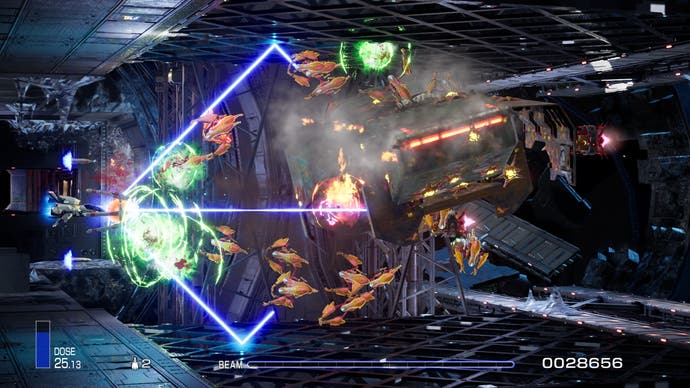
Some more specific questions about R-Type Final 2. You said about making an R-Type game for widescreen TVs. How does that impact the design of the game, the pace and the feel, when having that space?
Kazuma Kujo: The first thing that comes to mind with widescreen TVs, we're able to have what I consider to be a proper distance between the ships and parts of the stage. There's certainly more freedom in general, and essentially making enemies was easier - the process is just a little more natural and a little simpler because of that. We did have to increase bullet speed as a result - if they stayed the same speed the pacing would not feel quite as good so their speeds were increased. It resulted in a creation process that was a bit different than the previous games.
R-Type Final was known for its huge selection of ships. I know you're not going to have quite as many this time around. But how did you go about that selection process and deciding which ones to keep and which ones to discard?
Kazuma Kujo: First of all, I chose the ones I liked the best!
Haha, that's the perfect answer.
Kazuma Kujo: So first I started with the ones that I liked. And eventually they just kind of went in order, and the idea was to fit in as many as possible. I haven't told anyone else this yet, but the end goal, possibly with DLC later on, is to have every single R-Type Final one ship in R-Type Final 2.
Well, that's amazing. That's awesome to hear.
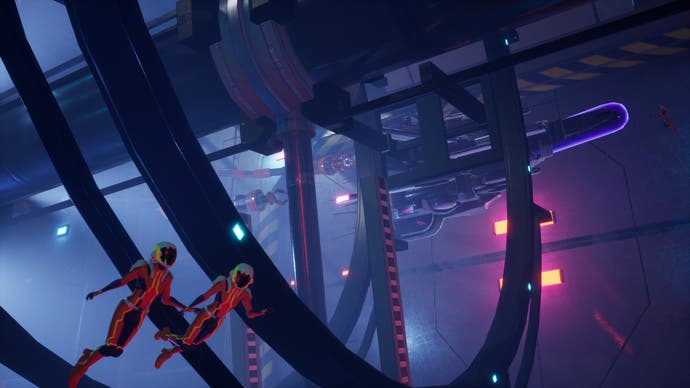
Kazuma Kujo: I don't want to pick what doesn't go in. I want it all to be there, and I don't want to put anything on the cutting room floor as it were.
That's really, really good to hear that. This feels like you're able to do quite a lot with R-Type with the level of support you've got. You surpassed your Kickstarter goal - did it surprise you how much support the project received?
Kazuma Kujo: We definitely got more support than we had anticipated. We heard about Kickstarter years before we actually made one. But even still, we reached levels that we did not expect to reach.
That's fantastic to see. At the time of the original your outlook for the shooting genre wasn't so optimistic. What's your outlook on the genre now?
Kazuma Kujo: Well, you're absolutely right, we believed the genre was done for. And now we feel the opposite. Even in another 10, 15 years, it'll still be around.
